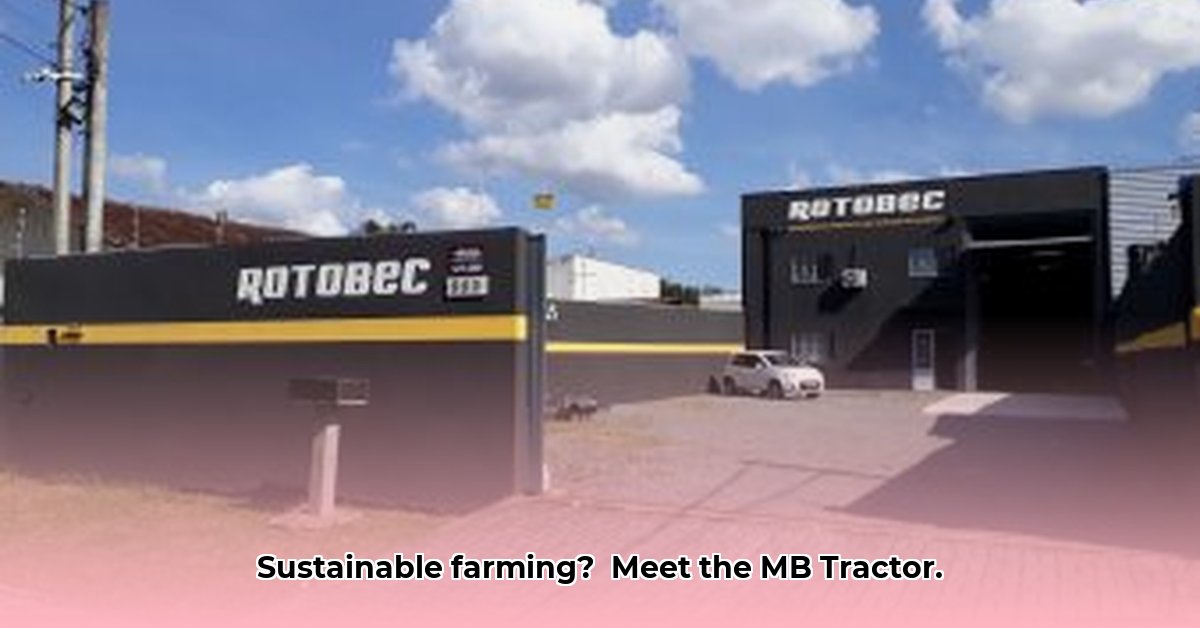
MB Tractor Eliot, Maine: Sustainable Farming Equipment Investment
Kubota, a prominent agricultural equipment manufacturer, promotes a commitment to sustainable agriculture. However, a thorough examination reveals significant limitations in readily available data supporting this claim, especially regarding the environmental impact of their tractors sold through dealerships like MB Tractor in Eliot, Maine. This investigation explores the supporting and contradictory evidence, highlighting the critical need for greater transparency within the industry. For comparison, consider the environmental impact of other manufacturers like those producing John Deere 1 Series tractors.
Supporting Evidence: A Qualified Look at Kubota's Claims
Kubota's extensive warranty coverage and widespread dealer network, including MB Tractor in Eliot, Maine, suggest a commitment to product quality and customer satisfaction. These factors indirectly contribute to sustainability by extending equipment lifespan and reducing the need for frequent replacements. However, these aspects alone do not definitively demonstrate environmentally responsible practices. Long warranties, for instance, don't necessarily correlate with environmentally friendly manufacturing processes or reduced lifecycle emissions. The widespread dealer network enhances accessibility, but doesn't address the environmental impact of manufacturing and transportation.
Contradictory Evidence: The Critical Lack of Data
The most significant challenge in evaluating Kubota's sustainability commitment lies in the profound lack of publicly accessible environmental data. Crucial metrics, such as precise fuel efficiency figures, greenhouse gas emissions during operation and manufacturing, and comprehensive lifecycle assessments (LCAs) of their tractors are largely unavailable. This absence of transparency hinders a robust assessment of their environmental impact and creates a significant barrier to informed decision-making by farmers, investors, and environmental stakeholders. The limited data available prevents a comprehensive comparison with competitors, rendering any claim of superior sustainability unsubstantiated. This data scarcity is not unique to Kubota, but it underscores a widespread industry issue demanding immediate attention.
Analysis & Synthesis: The Weight of Missing Information
The contrast between Kubota's publicized commitment to sustainable agriculture and the paucity of supporting data weakens the credibility of their claims. The absence of key environmental metrics undermines the ability to assess their actual contribution to sustainable farming. This lack of transparency leaves farmers in Eliot, Maine, and elsewhere, facing a significant hurdle in making informed purchasing decisions aligned with their environmental values. Similarly, investors lack the necessary information to make informed investments based on robust environmental, social, and governance (ESG) criteria. Environmental groups are hampered in their efforts to track and promote environmentally responsible practices within the agricultural machinery sector.
Conclusion: A Call for Enhanced Transparency and Actionable Steps
This investigation concludes that while Kubota promotes its dedication to sustainable agriculture, the lack of readily available and independently verified environmental data significantly weakens the substantiation of these claims. This transparency deficit hinders informed decision-making across various stakeholder groups. To address this, several actionable steps are crucial:
Independent Life Cycle Assessments (LCAs): Independent third-party organizations should conduct comprehensive LCAs of Kubota tractors, evaluating their environmental impact across their entire lifecycle. These assessments must incorporate standardized metrics to enable meaningful comparisons across manufacturers.
Publicly Available Sustainability Reports: Kubota should release detailed, regularly updated reports encompassing emissions data, water usage, materials sourcing, and end-of-life management strategies. This data should be independently auditable for enhanced transparency and accountability.
Industry-Wide Benchmarking: Kubota should participate in industry-wide initiatives that promote transparency and standardized environmental reporting practices. This will foster healthy competition and encourage consistent improvement across the sector.
Further Research: Addressing the Unknowns
Further research is urgently needed to fill the current data gap. This should include:
- Comparative LCAs: Independent studies comparing the environmental performance of Kubota tractors with those of leading competitors.
- Field studies: Analyzing real-world fuel efficiency and emissions data for Kubota tractors under various operating conditions in different agricultural settings.
- Supply chain assessments: Evaluating the environmental sustainability of Kubota's supply chain, examining the environmental impact of raw material sourcing, manufacturing processes, and transportation.
This comprehensive research will be crucial in providing farmers, investors, and environmental groups with the robust data needed to make truly informed decisions, advancing sustainable agriculture in Maine and beyond. The absence of readily available data should not be interpreted as evidence of unethical practices; rather, it highlights a crucial need for increased transparency within the agricultural equipment industry.